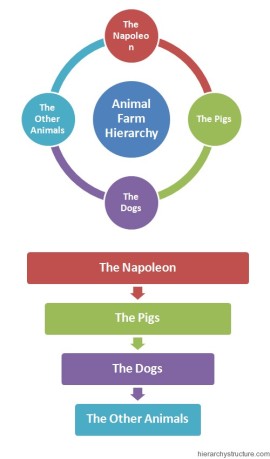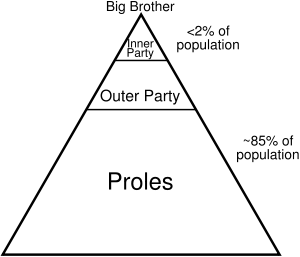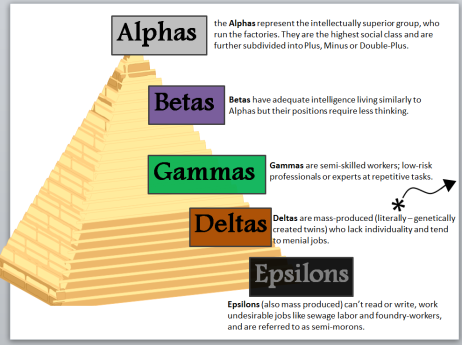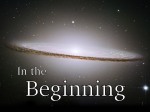For an introduction to this topic, check out my previous post, The Dystopia- My Favorite Social Issue Addressed in Fiction.
Class Systems:
One of the most common elements in Dystopian fiction is the presence of extreme classism. The rich elites rule the lowly working classes, and they typically live apart from the lower classes in some kind of hyper developed inner circle, because rich people deserve rich things! Lower classes are usually stripped of freedom and privacy in order for the elites to soundly rule over them. This caste system is reinforced by state propaganda and “educational” efforts used to brainwash the common people into accepting the overruling regime. Social classes appear to be uniform, marking individuality as a crime against the system in charge–hipsters beware. All of these elements are pushed to the extreme in Dystopian fiction in order to emphasis how terrible the world has become (which as covered in my last post, is used to highlight social issue in real life that is a growing concern–in this instance, caste systems).
1984 Class System:
In 1984, Winston Smith, the main protagonist, is part of the Outer Party. Protagonists in Dystopian fiction are usually of a higher standing in the class systems, although they choose to find something inherently wrong with the world around them. 1984‘s class system is divided into three distinct sections: the Inner Party, Outer Party, and Proles. The Proles lie far outside the city, away from civilized man. The Inner Party does not even waste the time spying on them like they do with the Outer Party, which incidentally makes them freer than the Outer Party. Proles are drowned in “Prolefeed,” which is basically anything used to distract them such as Pornography and Alcohol (it’s not all bad in the slums, huh?). The Outer Party isn’t living much better than the Proles. Outer Party members are to abstain from sex, use rations to the point of starvation, and blindly follow the commands of the superior class. Below is an info graph of the class system.
Read more on 1984’s class distinction here
Brave New World:
Aldous Huxley’s Brave New World has a lot more futuristic elements than 1984. In a world of genetic engineering and happiness drugs, the class system is artificially created by those in power. The lowest classes are mass produced in order to operate the mundane chores needed to make the world function (talk about a fun and rewarding job). The lowest three classes, there are five altogether, perform the most repetitive tasks. Epsilons, the lowest class, don’t even have the ability to read or write–they do the Mike Rowe jobs unsuitable for Alphas or Betas. Epsilons and Deltas are mass produced and, therefore, lack any distinct personality. They’ll be happy as long as they get their soma! Soma is a drug used by the government to keep the masses in-line. Bernard, our protagonist, is of the highest social standing, but he is ostracized for his inferior physical size and odd opinion on sex/dating. Here’s an informative picture I found online of the class system:
 In George Orwell’s Animal Farm, Napoleon leads the entire hierarchy as a supreme commander. He represents the king of our little animal play. The pigs beneath him are his right hand and represent the ministry class. Dogs are the army of Napoleon and represent the police state, while all of the other animals represent common man and the working class. Just as with most real-life societies, the working man is ruled over by inferior numbers and is unaware of its own potential/strength. They are blindly obedient to the pigs, whom they believe are representing the animal’s best interest because the pigs are smarter. Read more here.
In George Orwell’s Animal Farm, Napoleon leads the entire hierarchy as a supreme commander. He represents the king of our little animal play. The pigs beneath him are his right hand and represent the ministry class. Dogs are the army of Napoleon and represent the police state, while all of the other animals represent common man and the working class. Just as with most real-life societies, the working man is ruled over by inferior numbers and is unaware of its own potential/strength. They are blindly obedient to the pigs, whom they believe are representing the animal’s best interest because the pigs are smarter. Read more here.
Implications:
Class systems (or divisions of power) are inherent in Dystopian writing. As most Dystopian fiction utilizing the totalitarian government trope, caste systems come hand-in-hand. If power was distributed evenly among everyone it wouldn’t be much of a Dystopia (well I suppose it could be a sort of anarchic society that has broken down, as is the case in what Adam Sternburgh refers to as Dystopias in disorder). Dystopias in order–those run by totalitarian governments with strict class stratification–represent societal concerns with oppression and over controlling governments. They’ve become extremely popular over the last century, due to Nazi Germany and Soviet Russia, but they also symbolize current concerns as well. With the ongoing issue of privacy, pressed by the NSA and public surveillance, American citizens are facing a real world Dystopian scenario. In fact, Senator Rand Paul publicly declared the NSA’s abuse of privacy to be that of a Dystopian government. Read about it here. These novels are not only alluding to past errors, they also serve to discourage repeat behaviors in the future. Perhaps we need another novel written that reflects the NSA’s intrusions. For another current example, check out this article on Sochi, regarding the recent Olympics.
Will these real life “Dystopian realities” affect the trend of YA literature and the Dystopian fad that readers have been swept up in?
One of the reasons people choose to read Dystopian fiction is for the escape from real life. If our real life becomes similar to these Dystopian themes, they won’t be an escape, just a reminder of how screwed up the world has become. For the people living that world, these novels would likely be avoided. As Maloney states in his Sochi article, ” And that’s the problem — Entertainment is meant to be an escape, fantasy and science-fiction in particular; movies about poverty don’t do well during a recession because no one in the midst of turmoil likes seeing their suffering splashed onto the silver screen.”
So what do you think? Will the concurrent Dystopian conditions in real life adversely affect Dystopian literature sales, or will it create a new breed of Dystopian fiction meant to highlight the current tragedies the world is facing?







